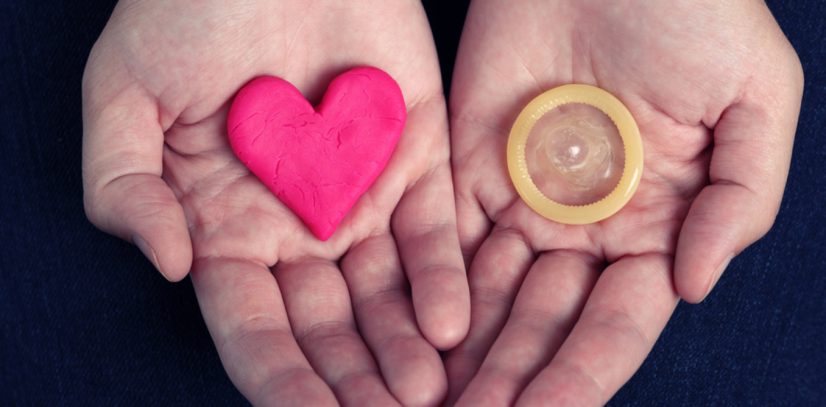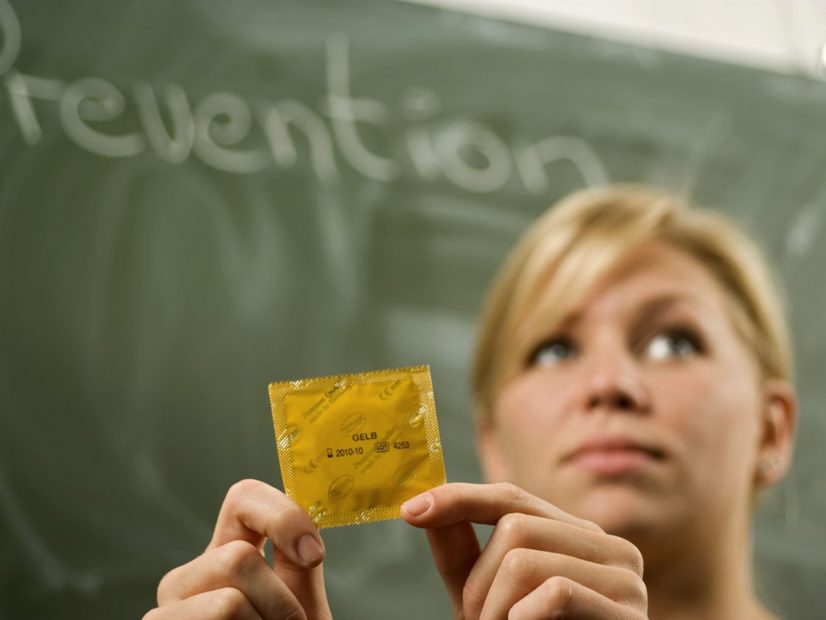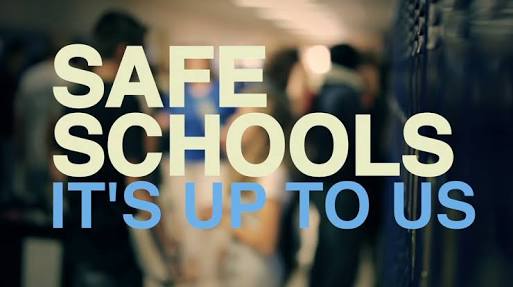Teaching sex education has always been a sore point for educational institutions and parents alike. Neither particularly want to do it. When it is done, they blame each other for inadequate teaching or improper inappropriate teaching.
Combine that with a litigious society and the focus then shifts away from the importance of teaching our young but about protecting ourselves, assets, and reputations.
Take for example the recent heat in regards to the Safe Schools issue. It doesn’t even necessarily cover sex per say, but gender and body issues.
Thinking about my own Sexual Education
I knew enough to understand where the dick went. But it was emotionless, detached, and focused on reproduction. Sex was a form of reproduction, there was no pleasure in it. It was about achieving climax and getting the deed done.

A Few Things They Don’t Teach in Sex Education
1. What a normal healthy cock, vagina and ass looks Like.
Confidence is a huge thing to a teenager. When your body is going through so many changes at a rapid pace it’s easy to get lost in everything. By teaching that everyone has different shapes, sizes, and all sorts of things in between it would do wonders to boost a young person’s confidence.
It is also a precursor to sexual health, and by acknowledging normality, you can then understand when something is wrong.
2. Porn is by no means an accurate depiction of sex.
Young adults consume pornography. We can like it or hate it. But it could be easily argued that the consumption of porn revolves around curiosity, a lack of positive and useful sexual information.
People need to know that there are different cocks, asses and vaginas and not everything looks like porn. Nor should sexual activity mirror porn.
Pornography should be understood to be a performance. Whilst young adults recognise that films and TV shows are a performance, it’s never explicitly stated that pornography is also a performance.
3. Check Your Balls
I am a 28 year old gay man. I came across a catchy title on the gailygrind a few months ago along the lines of Hot, Naked and how to check your balls. The guy looked cute, so I clicked. I then watched a video on how to check your balls for lumps, which could be cancer.
That’s an enormous amount of time whereby I didn’t know how to check my own balls for cancer.
Same can be said of women and spending time with a mirror and having a look at what’s going on. You aren’t taught that. That’s an important part of sexual health. With the American Cancer Society stating that one in every 263 men will develop testicular cancer at some stage in their lives, it’s important that these kinds of things be taught.
4. Sex and Pleasure
One of the primary reasons we even have sex is for pleasure but we aren’t ever taught that. This is probably considered the ‘riskiest’ of sexual health education because it is often seen as the promotion of sex.
It’s a part of sex.
Humans don’t just have sex to reproduce. We have it because we find it pleasurable, because it’s intimate and because orgasms, ejaculation, sex are incredibly healthy for an active body and mind.
5. People have sex with other people regardless of their sex and gender

6. Relationships are a part of sex
As mentioned above, sex is not just about reproduction. It’s about intimacy, relationships and partner ships. When leaving the emotional side of sex out of the equation, you’re setting people up to get hurt.
On that token Consent is rarely mentioned.
Considering the importance of sexual consent, and the continual bandying about of the term ‘Consent’. You’d think that we would spend more time determining the idea of consent. And what that means in a sexual context between sexually active persons.
7. Condoms and safe sex
Yes, safe sex is covered. But the amount of people that do not know that there are different sized and shaped condoms defies belief. A lot of people have grown accustomed to not wearing condoms because they had continually broken.
Condoms break for three reasons, incorrect size, not using lubricant, incorrect use and/or storage.
8. Confidence
Sexual confidence is an important part of sexual relations and mental health. All of the above lead to a confidence within yourself as a sexually active person. Without that confidence, you become a little lost and it’s easy to fall to the side in that time.
Sex education is an important part of growing up.
Yes, we didn’t get that as we grew up. Is there not a small part of you that wishes you had been a little more prepared?
I don’t think there is anyone that would actively say no. Life is already challenging enough, and half the problem with sexual education is the level of awkwardness we perceive around it.
We, as a society, spend far too long trying to protect the innocence of our young that we forget that they have grown up. Many people argue that by exposing them to sexual education and sexual health that we open up their minds and they will make mistakes, but the point is that we all make mistakes.
How informed you are when you make it, is the difference.

Desexualisation of Sex Education
It’s in our nature to take many things in life for granted without even realising it. Privilege is a concept that is rarely recognised until it has been taken away from you.
It is applied to many situations in life. But the most common reference to the notion of privilege would be the concern surrounding male privilege. The ‘battle’ between patriarchy and feminism. I’ve talked extensively about that in previous articles, so we’ll be skipping that topic today.
Today’s article will serves as a follow up from my previous article on sex education for the intellectually disabled.
Exploring Sex and Sexual Privilege
I’d like to explore the discourses of sex and sexual privilege outside the realm of heteronormativity, and able-bodiedness.
There were parts of my previous article which concerned Intellectual Disability that deeply resonated with me. Since that article, I had explored and thought about my approaches to sex and sexuality. Ultimately, I was placed in a position of questioning. Both in terms of my own experiences and life, but also when taking into consideration the experiences that others go through.
Assumed Knowledge of Sex Education
Most notably, when it comes to sexual health and education, there is a strong emphasis on assumed knowledge and assumptions concerning sex and sexual activity.
These assumptions have led people with I.D to be labelled as asexual, or perceived to not have any form of sexual desire and/or arousal.
Where does this stem from though and why are we in a constant state of desexualisation and hypersexualisation?
Today we will explore these assumptions and this article is going to look at sexual privilege how it entwines between sex, sexuality, and gender. As well as how it manoeuvres through disabilities.
From the moment that our genitalia has been identified our privilege is assumed.
If we are a woman, it is assumed that we will grow up and bear children. And if we are a male it is expected that we will produce children.
It is worth noting that this is partly why so many people have issues with same sex relationships. Because that kind of relationship bypasses the supposed biological ‘need’ to procreate.
Indeed, in the past, any lack of ability in producing children was frowned upon. Barrenness being a condition which would result in isolation and/or disownment. It is these gendered expectations that defines our formative years. Which implicitly or explicitly is reinforced as we traverse through sexual education during schooling.
Sexual Health and Education focuses on the biology of sex
That being penis in Vagina intercourse results in ejaculation releasing sperm which travels up the tube to fertilise the egg. Nine months later a baby is born.
In most cases, that is the basic level of knowledge given to children and teenagers. Though it should be noted that there are a lot of teenagers and indeed, even adults that lack this basic information. From there, knowledge may be given in regards to the prevention of STI’s. Or the prevention of pregnancy through contraception.
Sexual Education rarely accounts for discourses surrounding sexual pleasure or even the social and emotional reasons for sex.

Masturbation as a form of pleasure is also rarely discussed
Resulting in a failure to explore the interpersonal meanings of intercourse and sexual activity. This can often manifest itself into feelings of guilt, embarrassment, and awkwardness.
Sexual activity is simply referred to as a biological function for the purpose of reproduction devoid of any sentiment, pleasure, and enjoyment.
Is it little wonder then that both males and females, during their adolescent years can experience such anxiety as a result of the confusion surrounding the changes occurring to and in their bodies. Or the development of feelings and emotions, and combating hormones.
Why?
They’re taught that sex has a function and not taught that sex can be a recreational activity.
Throughout their upbringing their sex and sexuality has at all times been both reinforced and assumed through popular culture, media, everyday discussions and a lack of sex positivity in their micro worlds.
For someone that fits into mainstream society, for an individual that identifies as being heterosexual and cis-gendered – then all the assumptions that have been made in regards to your identity and sexuality have contributed to your understanding of the world.
Your privilege in this identification has resulted in far less confusion.
What About Someone Who Doesn’t Fit in the Mainstream?
Pause to consider someone who does not fit into the above mainstream spectrum. Someone who may identify as homosexual, asexual, or even someone with disabilities. Where their sexuality and sexual needs have been infantalised into non-existence.
Straightness is ‘inherent’. Heterosexual sex is assumed and taught with homosexual sex being ignored.
I have never been in a classroom (excepting a sexual health centre) which would recognise the value of oral, or anal sex or non-penetrative sex.
With this in mind we can begin to see the confusion.
Not only do they have all the normal ‘teenager’ things that they have to deal with. But they now have to deal with these things in a context which doesn’t necessarily apply to how they feel, or how they behave.
It can be particularly troubling for where people exist in an odd contradiction – where society has desexualised them.
For example, people with Intellectual disabilities which we discussed and also the desexualisation of people with physical disabilities.
Young women especially are often taught that the value of being female lies within their sexual attractiveness
If you have a condition which challenges the idea of attractiveness, where does that leave you? For many people it results in sacrificing a part of themselves obsessively chasing something seemingly unattainable. Resulting in often risky sexual behaviour in an attempt to please their partners.
‘Love’ in this instance can become a warped, and self destructive behaviour where one participant is continually seeking affection and reassurance and not particularly achieving that.
People will often compensate by making themselves into something that they are not. They do this to cover their own insecurities. The issue is that this makes you feel worse on the inside as you recognise that you’re not being true to yourself.

Sex Education in Schools Approach Needs to Change
The issue behind the majority of this is the way that we approach the teaching of sex, and sexuality.
Schools shift it to parents. Few parents want to discuss it and shift it back. What results is a medical and biological explanation of sex, which is all well and good, and indeed necessary. But it bypasses the emotional aspects of sex and sexuality.
It skips the reasoning’s behind sex and results in a clinical stripped back variation and mentality.
Sex is an important aspect of life, and the way it is being taught to youth now is detrimental to the general well being of today’s youth.

Jennifer is a marketer and sex toy reviewer at Adultsmart! Embracing a non-judgmental stance, she believes in pleasure without limits—if it feels good and right, why not?








Leave a Reply